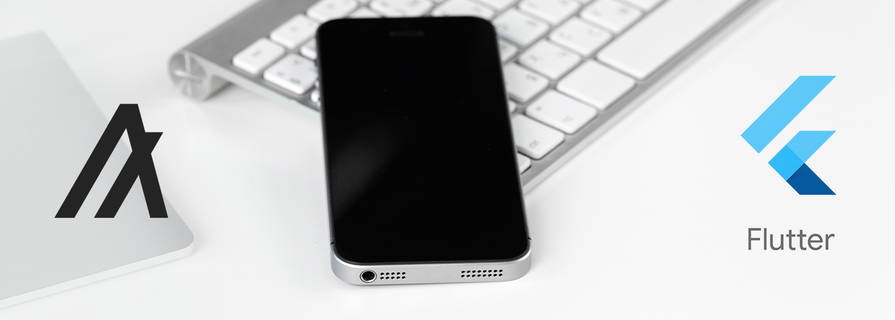arc
Showing 329 posts related with arc.
-

Royalty payments using ARC18
This article summarizes the royalty payments ARC18 specification for Algorand Standard Assets(ASA) .
-
 Beginner · 15 minutes or less
Beginner · 15 minutes or lessLocating a Transaction using the Archiver/Indexer with Python
Locating a Transaction using the Archiver/Indexer with Python
-
 Beginner · 15 minutes or less
Beginner · 15 minutes or lessLocating a Transaction using the Archiver/Indexer with Go
Locating a Transaction using the Archiver/Indexer with Go
-
 Beginner · 15 minutes or less
Beginner · 15 minutes or lessLocating a Transaction using the Archiver/Indexer with JavaScript
Locating a Transaction using the Archiver/Indexer with JavaScript
-
 Beginner · 15 minutes or less
Beginner · 15 minutes or lessLocating a Transaction using the Archiver/Indexer with Java
Locating a Transaction using the Archiver/Indexer with Java
-

Developer Intermediate Bootcamp
All the content will be in English and it is totally free, so if you are a developer and you ask yourself: Why should I be interested in learning about Algorand and participating in the Bootcamp? Algorand has different SDK's to help you with the building process in different languages and with extensive documentation. The costs and speed for testing on Algorand are extremely low, which will allow you to learn and test without friction. The companies that work with Algorand are constantly looking for developers to join their work teams. At the end of the Bootcamp you will be able to participate in solving challenges that will test your knowledge and will serve as a cover letter for you to apply for a Web3 job in the Algorand ecosystem. When you decide to start working in blockchain, it is essential that you know the characteristics of the protocol that you are going to use, here are those of Algorand: It is a layer 1 network that can process more than 6,000 transactions per second and is expected to reach 10,000. The cost per transaction is 0.001 ALGO == $0.0003 USD Approx. Our blocks are processed in 4 seconds. We are a carbon negative blockchain as we are committed to being environmentally friendly. What will you learn during the Bootcamp? Each session is 2 hours. 1.5 hours of content and 0.5 hours of Q&A. ### Session 1: State Storage - Build a Decentralized Autonomous Organization (DAO) contract - Use local and global state values - Refactor to make use of box storage state values - Implement proposal and voting mechanics ### Session 2: User-Defined Data Types - Explore various types: base, custom, tuple - Design a tuple for holding NFT traits within box storage - Update DAO contract to vote on those traits ### Session 3: Algorand Standards (ARC) for NFT, ABI and More - Introduce ARCs using SDKs - Explore various NFT standards (3, 4, 19, 69) - Update DAO contract using custom data type based on an NFT ARC - Test the contract by importing the ABI into dAppFlow - Introduce off-chain data storage using IPFS ### Session 4: Contract Composability - Implement NFT Factory - Enable the DAO to mint NFTs based on proposals/votes - Reuse auction from beginner to sell NFT - Distribute earnings to DAO members ### Who can participate? Everyone is welcome to build on Algorand! It is encouraged that you have successfully completed the Algorand Developer Bootcamp Beginner series, as that content provides the foundation for these intermediate sessions.
-

Algorand Developer Bootcamp | Intermediate
### Why should I be interested in learning about Algorand and participating in the Bootcamp? * Algorand has different SDK’s to help you with the building process in different languages and with extensive documentation. * The costs and speed for testing on Algorand are extremely low, which will allow you to learn and test without friction. * The companies that work with Algorand are constantly looking for developers to join their work teams. At the end of the Bootcamp you will be able to participate in solving challenges that will test your knowledge and will serve as a cover letter for you to apply for a Web3 job in the Algorand ecosystem. * Grow your web 3 developer skills on time to be able to participate in our exciting Global Virtual Hackathon at the end of the year. We’ll release more details shortly. **Each session will be 2 hours. Here’s what you can expect to cover over the 4 days:** * Session 1: State Storage * Session 2: User-Defined Data Types * Session 3: Algorand Standards (ARC) for NFT, ABI and More * Session 4: Contract Composability ### Why Algorand? When you decide to start working in blockchain, it is essential that you know the characteristics of the protocol that you are going to use, here are those of Algorand: * It is a layer 1 network that can process 10,000 transactions per second. * The cost per transaction is 0.001 ALGO == $0.0003 USD Approx. * Our blocks are processed in 3.3 seconds. * We are a carbon negative blockchain as we are committed to being environmentally friendly.
-

AlgoNim
AlgoNim is the first Algorand game incorporating all the features introduced in Algorand 2.0: Algorand Standard Assets (ASA), Atomic Transfers (AT) and Algorand Smart Contracts (ASC1).
-

Example Permissioned Voting Stateful Smart Contract Application
This solution explains one way to build a permissioned voting application on the Algorand Blockchain.
-

Example Permissionless Voting Stateful Smart Contract Application
This solution explains one way to build a permissionless voting application on the Algorand Blockchain.
-

ASA Recurring Withdrawal DApp
Build an ASA's recurring withdrawal dApp combining Algorand Standard Assets, Algorand Smart Contracts and Atomic Transfers.
-

Block'n'Poll - Blockchain polling web application
Block'n'Poll is a blockchain polling web application that allows users to easily create permissionless polls and vote on Algorand blockchain.
-

AlgoRealm, a NFT Royalty Game
AlgoRealm is a simple NFT game that provides an example of how to build NFTs with embedded royalty policies on Algorand.
-

Create a Cross-Platform Wallet with Flutter and Dart SDK
Use Flutter 2 to create production-ready cross-platform Algorand applications and export them to mobile, web and desktop.
-

Building iOS Apps Using Swift Algorand SDK
Demonstrates developing an iOS app using the Swift Algorand SDK
-
Case Study: OneStep Disaster Relief Platform Built on Algorand
This article describes the development of a comprehensive disaster relief platform powered by the Algorand blockchain.
-

Integrate AlgoSigner to JavaScript Application on Algorand
This solution contains several examples of different ways to use the Algorand JavaScript SDK, including sending transactions, creating atomic transfers, and interacting with Smart Contracts.
-

ASA Bidding Application Using PyTeal
Solution that explains a system developed on the Algorand network that does automated bidding for an asset of interest for a predefined period of time. The app is developed using PyTeal and py-algorand-sdk